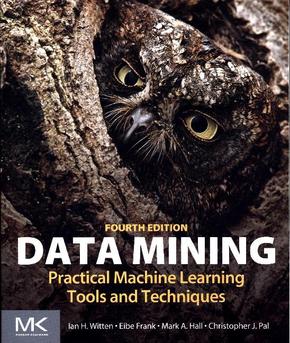Data Mining - Practical Machine Learning Tools and Techniques
| Verlag | Morgan Kaufmann |
| Auflage | 2016 |
| Seiten | 654 |
| Format | 18,9 x 23,5 x 2,8 cm |
| Gewicht | 1250 g |
| Artikeltyp | Englisches Buch |
| ISBN-10 | 0128042915 |
| EAN | 9780128042915 |
| Bestell-Nr | 12804291EA |
Data Mining: Practical Machine Learning Tools and Techniques, Fourth Edition, offers a thorough grounding in machine learning concepts, along with practical advice on applying these tools and techniques in real-world data mining situations. This highly anticipated fourth edition of the most acclaimed work on data mining and machine learning teaches readers everything they need to know to get going, from preparing inputs, interpreting outputs, evaluating results, to the algorithmic methods at the heart of successful data mining approaches.
Extensive updates reflect the technical changes and modernizations that have taken place in the field since the last edition, including substantial new chapters on probabilistic methods and on deep learning. Accompanying the book is a new version of the popular WEKA machine learning software from the University of Waikato. Authors Witten, Frank, Hall, and Pal include today's techniques coupled with the methods at the leading edge of contemporary research.
Please visit the book companion website at https://www.cs.waikato.ac.nz/~ml/weka/book.html.
It contains
Powerpoint slides for Chapters 1-12. This is a very comprehensive teaching resource, with many PPT slides covering each chapter of the book Online Appendix on the Weka workbench; again a very comprehensive learning aid for the open source software that goes with the book Table of contents, highlighting the many new sections in the 4th edition, along with reviews of the 1st edition, errata, etc.
Inhaltsverzeichnis:
Part I: Introduction to data mining
1. What's it all about?
2. Input: Concepts, instances, attributes
3. Output: Knowledge representation
4. Algorithms: The basic methods
5. Credibility: Evaluating what's been learned
Part II. More advanced machine learning schemes
6. Trees and rules
7. Extending instance-based and linear models
8. Data transformations
9. Probabilistic methods
10. Deep learning
11. Beyond supervised and unsupervised learning
12. Ensemble learning
13. Moving on: applications and beyond
Rezension:
"...this volume is the most accessible introduction to data mining to appear in recent years. It is worthy of a fourth edition." --Computing Reviews

